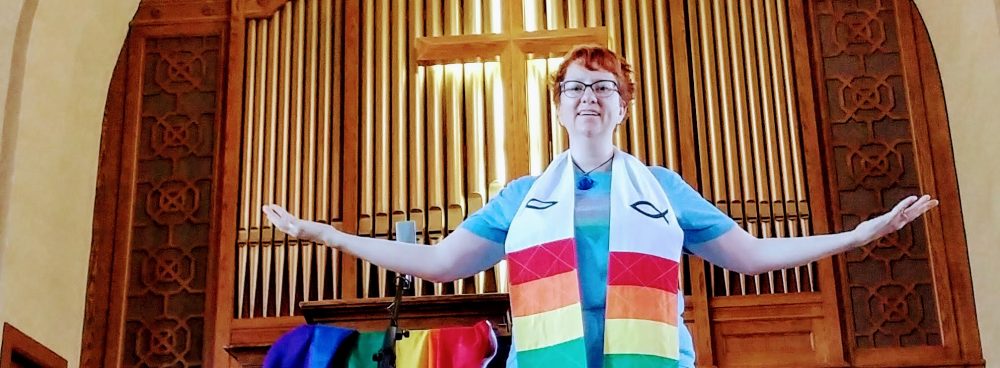Welcome to Advent. It is a new church year. It is a new season as we prepare for God among us.
I want to begin by unpacking Matthew 24:36-44. This is part of a sermon Jesus offers about the end of the age. We aren’t necessarily talking about the end of the earth—just a time when everything will change.
Jesus takes us back to Noah. Noah didn’t know exactly what was going to happen or when exactly the flood would come. He just knew that he had been given the task of building the ark and gathering the animals. Everyone else was simply carrying on with life as normal.
So, when Jesus talks about this coming time, he is reminding us that we do not know. We simply carry on with life as usual and something abrupt and unexpected will happen. If you know when your house is going to be broken into, you might stay up all night. You might plan your day around it. Jesus’ point is that you don’t know when your house will be broken into.
This scripture and similar scriptures are often used to support a “rapture theology.” It’s the idea that at the end of the earth, Jesus will come again. Some people will be taken to heaven—kept safe. Everyone else will be left behind and then the earth will be destroyed.
That’s not really what this scripture is talking about. In the midst of Roman occupation, two people might be working in a field or grinding flour. One is “taken” by the Romans, and the other is left behind. To be taken was not a good thing—it might mean torture or death. There are many places in the world where people are disappeared—Mexico, Iran, Syria, Ukraine—and even here in Canada. One person is taken and family and friends are left behind to wonder, mourn, and pick up the pieces of their lives. You can’t plan for this violent separation. You don’t know when it will happen or who will be taken. Asking questions doesn’t necessarily give answers.
Jesus isn’t talking about God destroying the world at the end time. He is inviting his listeners to think much closer and much more specifically. What happens when the Romans come to occupy your town and take your family member or neighbour? Will you be prepared? How will you respond?
We are much removed from the Roman occupation, but the questions are similar. Will we be prepared for upheaval and uncertainty? Will we be able to live faithfully when something rocks our world? Are we prepared for the God among us who turns the world upside down and changes the way we see the world?
The scripture is an invitation to hope and commitment. Hope is about acting now to shape the future that is yet unknown. It is about believing and trusting that the world could be better than it is and living as though that time were already here. But in practical terms, what does that mean?
A little further on in his sermon, Jesus offers these familiar words: “I was hungry, and you gave me food, I was thirsty, and you gave me something to drink, I was a stranger, and you welcomed me, I was naked and you gave me clothing, I was sick and you took care of me, I was in prison and you visited me.” These are the signs that God has come among us.
These are the hope and commitment we are being invited to make in our everyday lives. Even when it feels like the world is falling apart we are to be a sign of God in the world. This is what it means to be ready. In other words, caring for the world around us is something we do because we believe that God is already here and something we do to be ready for the moment when God arrives. Leading up to Christmas there is often a strong push to support food banks and other charities that help people in need. But the invitation is to be just as generous in our caring throughout the year. This is one moment but God can show up at any time—not just this season.
My invitation to you this advent season is to be prepared for God among us. Live with a vision for the world and then shape that world through your commitment to caring for God’s people and God’s creation.


